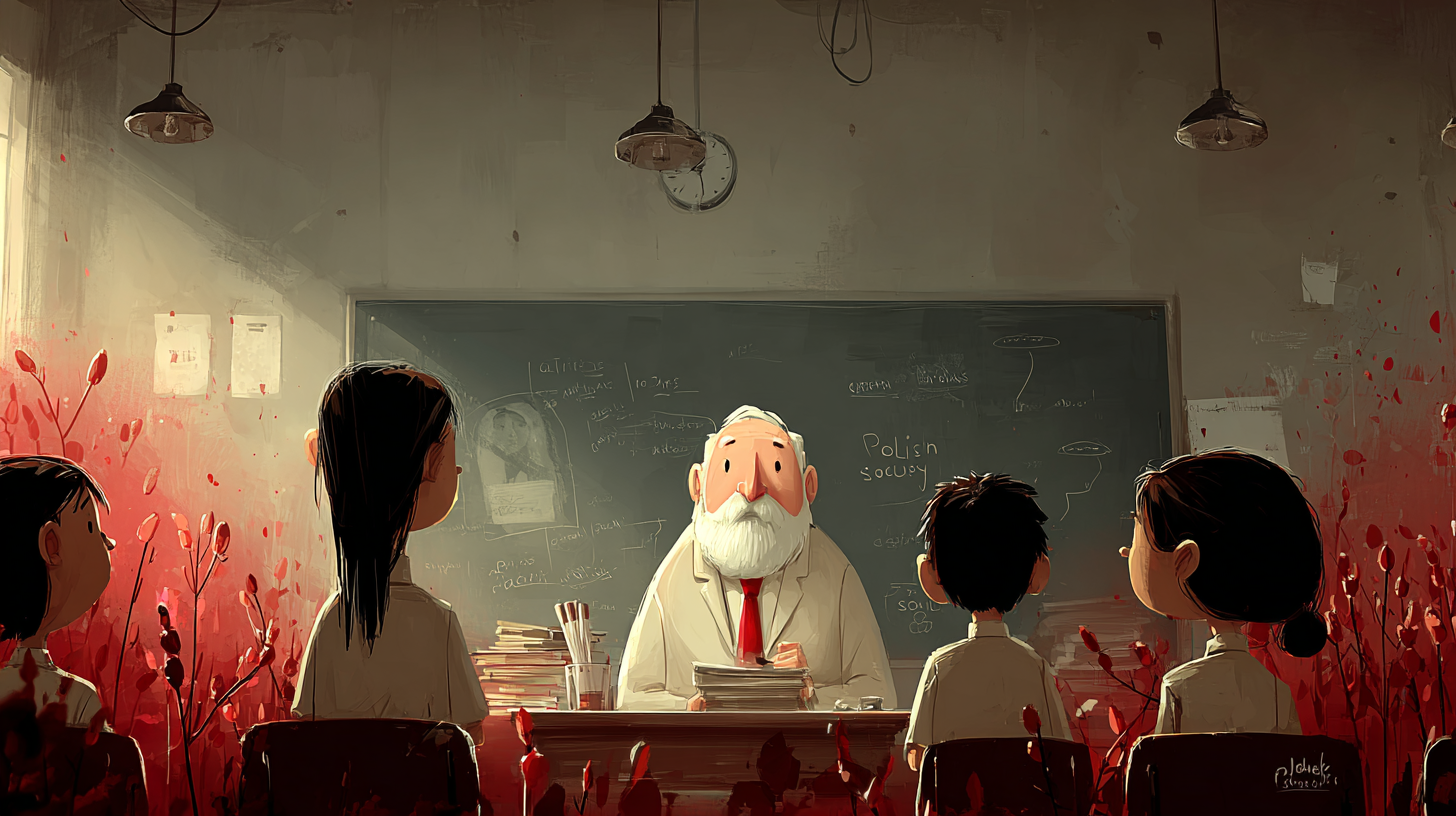“Politics” means the way people make decisions and run a country or community.
「politics」は、国や町をどう運営するか考えること、または政治に関わる活動を表す。
以下は英単語 “politics” に関するストーリー型学習コンテンツです。まずは大枠の意味を理解して最後の文章で確認しましょう。
主な意味(main meaning)
| 品詞 | 意味 | 発音記号 | 例文 |
|---|---|---|---|
| 名詞 | 政治、政治活動 | /ˈpɒlɪtɪks/ | Politics is often discussed in the news. |
語源(etymology)
「politics」はギリシャ語 politikos(市民の、国家の)から来ており、「人々が集まって社会をどう運営するか」という核のイメージを持つ。
類義語(synonyms)
| 類義語 | 例文 |
|---|---|
| government | The government makes laws for the country. |
| administration | The new administration promised to reduce taxes. |
| diplomacy | Diplomacy is important to keep peace between nations. |
| policy | The school has a strict policy on uniforms. |
反義語(antonyms)
| 反義語 | 例文 |
|---|---|
| apathy | His apathy toward politics surprised his friends. |
| indifference | Many young people show indifference to politics. |
コロケーション(collocations)
| コロケーション | 例文 |
|---|---|
| local politics | She decided to join local politics in her town. |
| international politics | International politics can be very complicated. |
| politics and economy | Politics and economy are closely connected. |
| politics of education | The politics of education often cause debate. |
2項表現(binomials)
| 2項表現 | 例文 |
|---|---|
| politics and society | Politics and society influence each other. |
| law and politics | Law and politics cannot be separated. |
英語ストーリー(english story)
Mr. Brown was a high school teacher who always encouraged his students to understand politics. He believed that young people should not only study math and science but also learn how society works. One day, he asked his students, “What do you think about the role of politics in our lives?”
Some students answered quickly. Tom said, “Politics decides how the government works. The government makes laws, and those laws affect us every day.” Mary added, “Yes, and the administration of our city decides things like school funding and local services.”
Another student, Ken, was not interested. “I don’t care about politics,” he said. “It’s boring.” Mr. Brown looked at him and said, “That is called apathy. If many young people feel apathy, then politics will be decided only by older people. Do you think that is fair?” Ken thought for a moment and replied, “Maybe not. But I still feel indifference.”
To help his students, Mr. Brown told a story about international politics. “A long time ago, two countries were in conflict. But thanks to diplomacy, the leaders talked and made peace. Without diplomacy, there might have been war.”
He continued, “Politics and economy are always connected. For example, the policy on trade affects prices in shops. The politics of education also affect you. When the government decides a new policy, your school life may change.”
The students listened carefully. Finally, Mr. Brown said, “Law and politics go together. Politics and society influence each other. If you understand politics, you can understand your world better.”
That day, even Ken started to think differently. He realized that politics was not only about elections but also about everyday life.
和訳
ブラウン先生は高校の先生で、生徒たちに政治(politics)を理解するようにいつも勧めていた。彼は若者は数学や科学だけでなく、社会の仕組みも学ぶべきだと考えていた。ある日、彼は生徒たちにこう尋ねた。「私たちの生活における政治(politics)の役割についてどう思いますか?」
数人の生徒がすぐに答えた。トムは「政治(politics)は政府(government)がどう動くかを決めます。政府は法律を作り、その法律が毎日の生活に影響します」と言った。メアリーは「そうね、そして私たちの町の行政(administration)は学校の資金や地域のサービスを決めるわ」と付け加えた。
別の生徒ケンは興味がなかった。「僕は政治(politics)なんて気にしないよ。退屈だし」と言った。ブラウン先生は彼を見て言った。「それは無関心(apathy)というんだ。もし多くの若者が無関心(apathy)になったら、政治(politics)は年配の人たちだけで決められることになる。公平だと思うかい?」ケンは少し考えて「たぶん違う。でもやっぱり無関心(indifference)なんだ」と答えた。
そこで先生は国際政治(international politics)についての話をした。「昔、二つの国が対立していた。でも外交(diplomacy)のおかげで、指導者たちは話し合い、平和を築いたんだ。もし外交(diplomacy)がなかったら、戦争になっていたかもしれない。」
さらに続けた。「政治と経済(politics and economy)はいつもつながっている。たとえば貿易に関する政策(policy)は店の値段に影響する。教育の政治(politics of education)も君たちに影響しているんだ。政府が新しい政策(policy)を決めれば、学校生活が変わることもある。」
生徒たちは真剣に聞いていた。最後に先生は言った。「法律と政治(law and politics)は切り離せない。政治と社会(politics and society)はお互いに影響し合っている。政治(politics)を理解すれば、世界をもっとよく理解できるんだ。」
その日、ケンでさえ考えを変え始めた。彼は政治(politics)が選挙だけでなく、日常生活そのものに関わっていると気づいた。
Q&A
Q: 「politics」と「government」はどう違うの?
A: 「politics」は国や社会を運営するための活動や考え方全般を表します。一方「government」は国や地域を実際に運営している組織や機関そのものを指します。
Q: 「politics」と「administration」はどう違うの?
A: 「politics」は社会や国を動かすための議論や活動を表します。「administration」は実際の運営や管理のこと、つまり「政治を実行する側」を強調します。
Q: 「politics」と「diplomacy」はどう違うの?
A: 「politics」は国内外の政治活動全般を含みますが、「diplomacy」は特に国と国の関係をうまく進めるための外交活動を意味します。
Q: 「politics」と「policy」はどう違うの?
A: 「politics」は政治活動や社会を動かす仕組みそのものを指しますが、「policy」は具体的に決められた方針やルールを表します。
Q: 「politics」と「local politics」はどう違うの?
A: 「politics」は広く政治全般を意味しますが、「local politics」は町や市など地域に限定した政治を表します。
Q: 「politics」と「international politics」はどう違うの?
A: 「politics」は一般的な政治を意味しますが、「international politics」は国と国との関係や国際的な政治問題を扱います。
Q: 「politics」と「politics and economy」はどう違うの?
A: 「politics」は政治そのものを表しますが、「politics and economy」は政治と経済の相互関係を強調した表現です。
Q: 「politics」と「politics of education」はどう違うの?
A: 「politics」は一般的な政治を意味しますが、「politics of education」は教育に関する政策や議論、つまり「教育分野での政治」を指します。



コメント